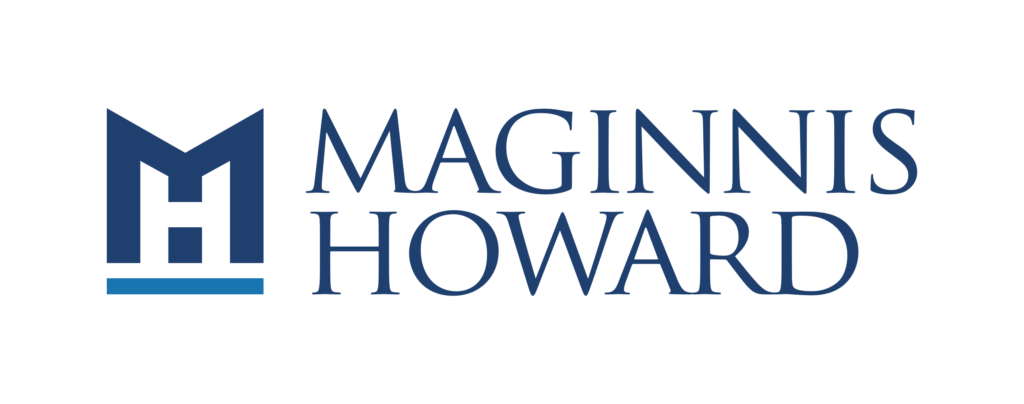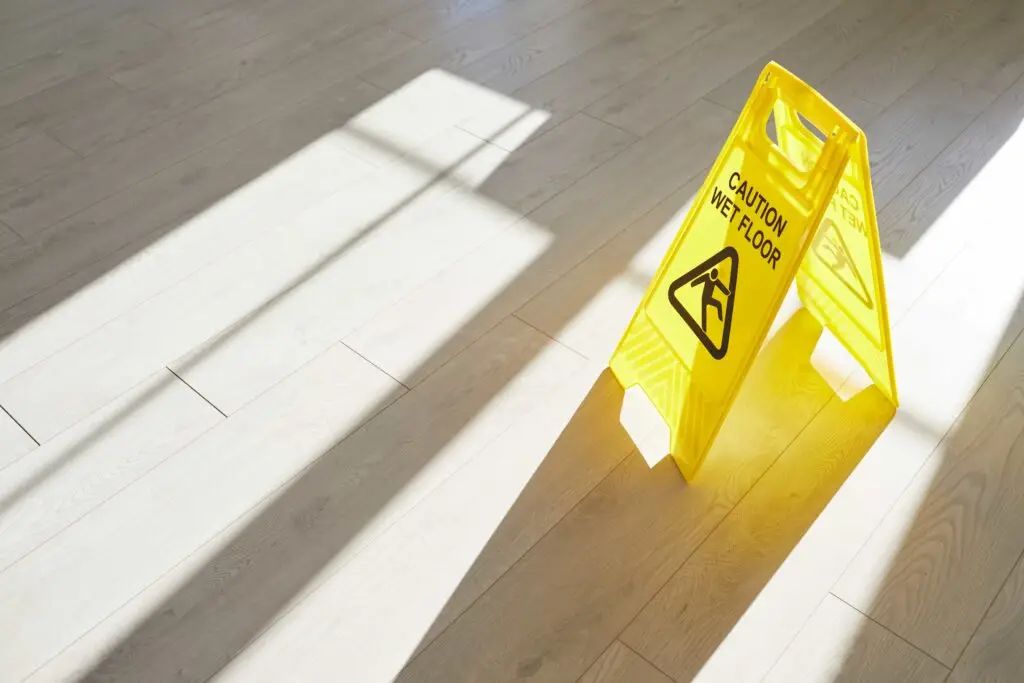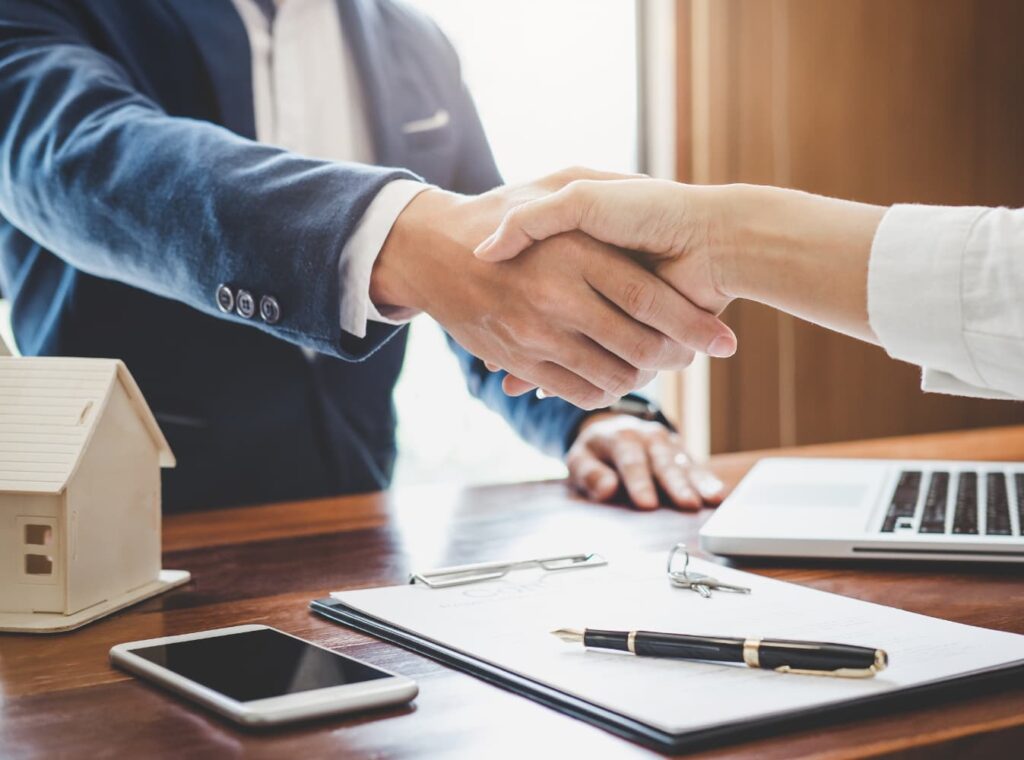Raleigh Slip & Fall Lawyer
In North Carolina, there’s a legal concept called “premises liability.” It holds property owners responsible for keeping their grounds reasonably safe for visitors.
If they fail in this duty and you are injured as a result, you have the right to seek financial compensation for the harm you’ve suffered. But securing that compensation requires proving that a dangerous condition caused your fall and that the owner knew, or should have known, about the hazard.
If you were hurt in a fall, the team at Maginnis Howard is ready to handle the legal work so you can focus on your health. Call us today at (919) 526-0450 for a free consultation to understand your options.
Table of Contents
Why Choose Maginnis Howard for Your Raleigh Slip & Fall Claim?
At Maginnis Howard, our practice is built on direct, personal representation. We are not a high-volume firm that churns through cases for quick, low-value settlements. We prepare every single case as if it is headed for a courtroom, a strategy that consistently puts our clients in the strongest possible negotiating position and can materially improve your chances of winning a personal injury lawsuit.
Our team has recovered more than $100 million for clients across North Carolina, a figure that reflects our commitment to pursuing the full compensation people need to rebuild their lives. Our record in unsafe property cases includes a $600,000 recovery for a client who fell at a construction site with missing safety barriers and a $1,730,000 settlement for a worker paralyzed after falling from poorly constructed scaffolding.
From our Raleigh office at 7706 Six Forks Road, Suite 101, we serve clients throughout the Triangle. We handle all injury claims on a contingency fee basis, which means our interests are aligned with yours.
- No Upfront Costs: You pay nothing to begin your case.
- We Advance All Expenses: Our firm covers the costs of investigating your claim, filing all necessary paperwork, and hiring experts.
- You Pay No Attorney’s Fees Unless We Win: Our fee is a percentage of the financial recovery we secure for you. If you don’t win, you owe us nothing.
What Financial Recovery Is Possible in a Slip and Fall Claim?
The goal of a personal injury claim is to provide the financial resources needed to cover every loss the accident inflicted. This financial recovery, called damages, is designed to make you “whole” again in the eyes of the law and is divided into three distinct categories.
Economic Damages (special damages):
These are the concrete, calculable financial losses that come with receipts and invoices. Special damages refer to the specific, out-of-pocket costs directly related to your injury—the tangible expenses that add up due to your accident.
- Medical Expenses: This covers everything from the initial ambulance ride and emergency room visit to future surgeries, ongoing physical therapy, and the cost of prescription medications.
- Lost Income: The wages you lost and will lose while out of work.
- Diminished Earning Capacity: If your injuries permanently affect your ability to do your job or force you into a lower-paying field, this compensates for that future loss.
- Other Direct Costs: This includes expenses like travel to doctor’s appointments or modifications needed for your home, such as a wheelchair ramp.
Non-Economic Damages:
These damages are meant to compensate for the intangible, human toll of the injury.
- Pain and Suffering: For the physical pain that flares up on cold mornings and the emotional distress that lingers long after the bruises have faded.
- Emotional Anguish: For the anxiety, fear, or post-traumatic stress that could follow a sudden, jarring fall.
- Loss of Enjoyment of Life: This addresses the way the injury has stolen your ability to participate in hobbies, family activities, and the simple pleasures you once took for granted.
Punitive Damages:
In rare situations involving shocking carelessness or malicious behavior, North Carolina law allows for punitive damages. These are not intended to repay you for a loss but to punish the at-fault party and send a clear message that such conduct will not be tolerated in our community.

Where Do Slip and Fall Accidents Happen in Raleigh?
We find that falls happen most frequently in places with heavy foot traffic, deferred maintenance, or a lack of basic safety protocols.
Common Raleigh Locations for Slip and Fall Incidents:
- Grocery Stores and Big-Box Retailers: : Spilled liquids in aisles, freshly mopped floors without proper signage, and merchandise that has fallen into walkways are frequent culprits. Slip and fall injuries are also common at hardware stores, where sawdust, leaking containers, or fallen items can create slip-and-trip risks. Stores along busy roads like Capital Boulevard or in major shopping centers such as Crabtree Valley Mall and North Hills have a high volume of visitors, which increases the risk of an unaddressed hazard.
- Parking Lots and Garages: Cracked pavement, deep potholes, poor lighting, and improper drainage create serious fall risks, particularly at night or during storms.
- Apartment and Condominium Complexes: Broken stairs, loose or missing handrails, dark walkways, and a failure to treat ice or snow on common paths are recurring issues that cause tenant injuries.
- Restaurants and Bars: Spilled drinks, grease tracked from the kitchen to dining areas, and dim lighting creates a high-risk environment for both patrons and staff.
- Government Buildings and Public Parks: Uneven sidewalks, poorly maintained public paths, and unsafe playground equipment potentially leads to falls on city or county property. These cases have their own unique rules and much shorter deadlines for action.
Seasonal and Weather-Related Risks in Raleigh:
- Winter Ice and Snow: While Raleigh may not get heavy snow each year, a single winter storm could leave treacherous icy patches on sidewalks and in parking lots. Property owners have a responsibility to take reasonable measures to clear or treat these areas.
- Summer Rainstorms: A heavy summer downpour makes smooth tile floors at store entrances dangerously slick. Owners should use mats and post clear warnings to prevent falls.
What Must Be Proven in a North Carolina Slip and Fall Claim?
It is not enough to show that you fell and were hurt on someone else’s property. To have a valid claim, you must prove the property owner was legally negligent. Your lawyer helps establish several key elements.
Key Legal Concepts Explained:
- Duty of Care: Property owners have a legal duty to maintain their property in a reasonably safe condition for people who are lawfully on the premises.
- Breach of Duty (Negligence): This is the legal term for the owner’s failure to meet that duty of care. To prove it, we must show the owner either created the hazard, knew about it and failed to act, or should have known about it.
- Actual vs. Constructive Notice: This is about proving the owner’s awareness of the danger.
- Actual Notice: This means the owner or an employee had direct knowledge. For example, another customer reported a spill, or an employee caused it.
- Constructive Notice: This is more common and a bit more complicated. It means a dangerous condition existed for such a long time that a reasonably attentive owner should have discovered and fixed it. A carton of melted ice cream that has formed a sticky puddle on the floor for an hour is a hazard the store has constructive notice of, because a diligent employee would have found it during routine checks.
- The North Carolina Statute of Limitations: In most cases, you have three years from the date of the fall to file a lawsuit. If you miss this deadline, the courthouse doors close, and you lose your right to seek compensation forever.
- The Harsh Reality of Contributory Negligence: North Carolina is one of only a handful of states with a rule called “pure contributory negligence.” If the property owner can convince a jury that you were even 1% at fault for your own fall, you are barred from recovering any compensation. Insurance companies may often argue that you weren’t watching where you were going or should have seen the hazard.

The Property Owner's Insurance Company Is Not Your Friend
Shortly after your fall, you should expect a call from an insurance adjuster representing the property owner. It is important to understand that this person’s job is not necessarily to help you. Their financial incentive is to protect their company’s profits by paying as little as possible on your claim—or nothing at all.
Expect the following:
- Pressing for a Recorded Statement: They may try to get you on record, but be aware that anything you say can and will be used against you. Even seemingly innocent statements, such as downplaying your pain or unintentionally accepting some blame, could be reasonably interpreted as something you never intended.
- Offering a Quick, Lowball Settlement: This is an attempt to close your case before you know the true extent of your injuries and what your future medical needs will be.
- Delaying and Denying: Insurance companies have processes in place that take time. If you get frustrated and accept an early offer, they won’t refuse. These processes also demand careful consideration—if something is missing from a form, they may even have grounds to deny your claim based on this technicality.
- Requesting a Blanket Medical Authorization: They will ask you to sign a form that gives them access to your entire medical history, not just records related to the fall. They do this to search for any pre-existing conditions to argue your pain is from an old injury.
How You Can Protect Your Claim's Value
While your lawyer manages the legal strategy, there are steps you should take to strengthen your position and protect your right to fair compensation.
- Follow Your Doctor’s Treatment Plan: Your health is the priority. Attend every medical appointment and follow through with all prescribed treatments, including physical therapy. If you stop treatment, the insurance company will argue that your injuries must not have been that serious.
- Keep a Pain Journal: Each day, take a few minutes to write down your pain levels, the daily activities you struggle with, and how the injury is affecting your mood and your life. This journal will become powerful evidence of your non-economic damages.
- Save All Paperwork: Keep every medical bill, co-pay receipt, and any other document related to your expenses in a single, dedicated folder.
- Be Cautious on Social Media: Insurance investigators will examine your social media profiles, looking for any photo or post that could be taken out of context to argue you aren’t as injured as you claim. The safest course of action is to refrain from posting until your case is resolved.
- Do Not Speak with the Insurance Company: Let your lawyer handle all communication with the at-fault party’s insurer. If an adjuster calls you, you can politely and firmly refer them to your attorney’s office.

Frequently Asked Questions About Raleigh Slip & Fall Cases
What if I fell at a friend’s or family member’s house?
Understand that your claim is almost always made against their homeowner’s insurance policy, not against them personally. This is precisely why they have insurance—to cover these exact types of incidents.
What if there was a “Wet Floor” sign near where I fell?
A sign does not give a property owner automatic immunity from liability. For a warning to be legally adequate, it must be placed where it is clearly visible and must reasonably communicate the specific danger. A single sign placed far from the actual spill or around a corner may not be considered a sufficient warning.
Do I have to go to court for my slip and fall case?
The great majority of personal injury cases are resolved through a negotiated settlement without ever going to trial. However, we prepare every case for the possibility of a courtroom. If the insurance company refuses to make a fair and reasonable offer, we are always prepared to present your case to a jury.
What if my fall happened on city property, like a public sidewalk in downtown Raleigh?
Claims against government bodies in North Carolina are governed by a different set of rules and much shorter deadlines under the North Carolina Tort Claims Act. You must provide formal notice of your claim very quickly, sometimes within just a few months of the injury.
What’s the difference between bodily injury and personal injury?
Bodily injury means the physical harm from the accident (e.g., fractures, concussions, soft-tissue injuries). Personal injury is broader—it includes bodily injury plus your wider losses (medical bills, lost income, pain and suffering, etc.).
Let's Build Your Path to Recovery
Rebuilding requires time, resources, and dedicated support. You do not have to carry the legal burden alone while you are trying to heal. The team of Raleigh personal injury attorneys at Maginnis Howard is here to manage the entire claims process so you are able to focus on what matters most: your recovery.
For a no-cost, confidential review of your Raleigh slip and fall claim, call us today at (919) 526-0450 or contact us online.
Maginnis Howard Personal Injury Lawyer – Raleigh Office
Address: 7706 Six Forks Rd Suite 101,
Raleigh, NC 27615, United States
Phone: (919) 526-0450
Contact Us
Related Practice Areas
- Raleigh Personal Injury Attorneys
- Raleigh Slip Fall Lawyer
- Raleigh Bicycle Accident Lawyer
- Raleigh Drunk Driving Accidents
- Pedestrian Accidents
- Catastrophic Accidents
- Raleigh Car Accident Attorneys
- Raleigh Motorcycle Accident Attorneys
- Raleigh Trucking Accident Attorneys
- Raleigh Wrongful Death Attorneys